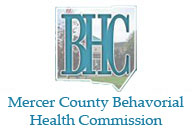Classroom Prevention Education Programs
Classroom Prevention Education Programs
Too Good For Drugs: Service definition: Too Good For Drugs is a school based prevention program that collaborates with parents and community members to improve the school climate, establish positive norms, and increase students bonding with their peers and teachers. This evidenced based program has been proven to reduce the intention to use alcohol, tobacco and other drugs among students. Provided to students in grades K-3. This program was created by the Mendez Foundation in Tampa, Florida.
How to obtain services: Interested Schools should contact the Prevention Supervisor at the MCBHC at 725-662-1550.
How are services delivered/provided: Too Good for Drugs offers separate, developmentally appropriate curricula for each grade level in kindergarten through grade 8. Each grade level builds on previous levels, helping students to develop their skills sequentially with engaging, age-appropriate activities and information. This program gives students the knowledge, skills and attitudes they need to make good decisions and avoid drug use.
Contact Information: Call the Prevention Supervisor at 724-662-1550.
Project AlertService definition: Project Alertis a school based prevention program that aims to reduce both the onset and regular use of substances among middle school youth in grades 6 and 7.
How to obtain services: Interested Schools should contact the Prevention Supervisor for more information.
How are services delivered/provided: Project Alert Coordinator teaches 11 consecutive sessions for each school classroom.
Contact Information: Call the Prevention Supervisor at 724-662-1550.
- Delays the onset of alcohol use
- Reduces use among youth who have already tried alcohol
- Limits the number of alcohol-related problems experienced by young drinkers
During Class Action, students are divided into six “legal” teams to prepare and present hypothetical civil cases in which someone has been harmed as a result of underage drinking. Using a casebook, along with audio taped affidavits and depositions, students build legal cases and present them to a jury of their peers. The six case topics include: date rape; drinking and driving; drinking and vandalism; drinking and violence; fetal alcohol syndrome; and school alcohol policies. The Class Action intervention develops resistance, decision-making, social competence, and leadership skills.Service definition: Class Action is a school based prevention program for youth in grades 9-12
How to obtain services: Interested Schools should contact the Class Action Coordinator for more information.
How are services delivered/provided: Class Action Coordinator facilitates the program based on developer guidelines.
Contact Information: Project coordinator, Jeff Hanley at 724-662-1550 or jeff.hanley@mercercountybh
© 2023 MCBHC, Inc. All rights reserved. | Site Maintained by MCBHC, Inc. | An Equal Opportunity Provider and Employer
